- Commodity currencies tightly linked to Chinese yields, with correlations up to 0.95 over past month
- Fed dot plot set to drive near-term direction, but China’s bond market remains the key influence
Summary
If you’re trading AUD/USD, USD/CAD, NZD/USD or other commodity currencies against the US dollar right now, you may want to take an occasional glance at the shape of the Chinese yield curve. Because while Federal Reserve monetary policy decisions and yield differentials remain important, it’s been China’s interest rate outlook that’s been far more influential on their performance.
Commodity Currencies Sink on Collapsing Chinese Yields
The charts below emphasise that point. Before we look at each individually, the left-hand pane in each shows trends across Chinese bond yields with maturities ranging from one to 30-years. The middle pane looks at the recent price action for a commodity currency against the US dollar. The most important section is the right-hand pane, revealing the rolling 20-day correlation between the variables in the first two panes.
AUD/USD is the first pair we look at.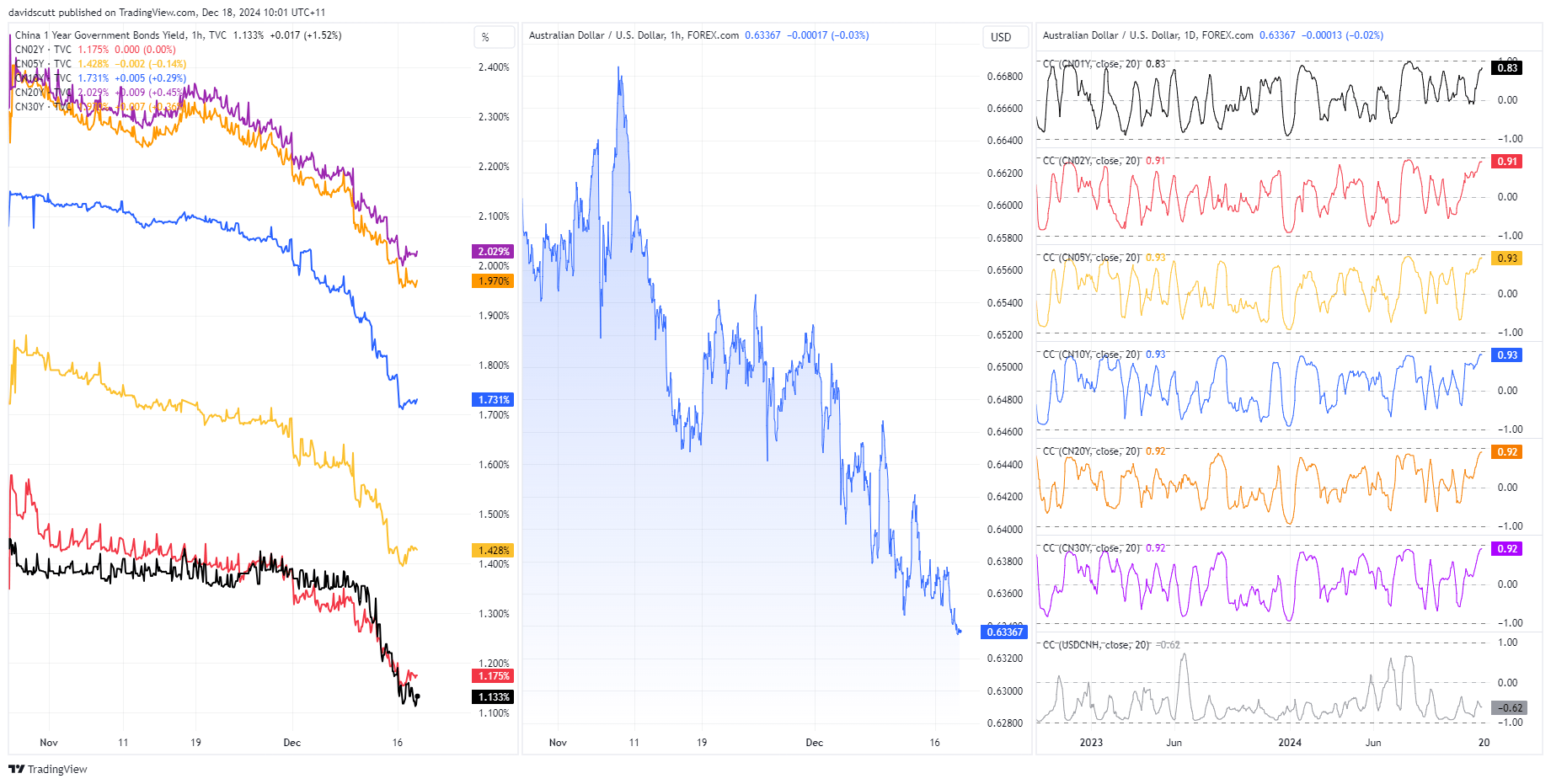
Source: TradingView
Whether it’s short or long-dated Chinese bond yields, AUD/USD has been tightly hitched to them over the past month, with correlations ranging from 0.83 to 0.93 for five and 10-year yields.
In contrast, the inverse correlation with USD/CNH has been much weaker at -0.62. This suggests the Aussie dollar isn’t just a yuan proxy. Instead, it’s being traded as a bet on China’s growth and inflation outlook, key drivers of sovereign yield pricing ,along with uncertainty towards the future. 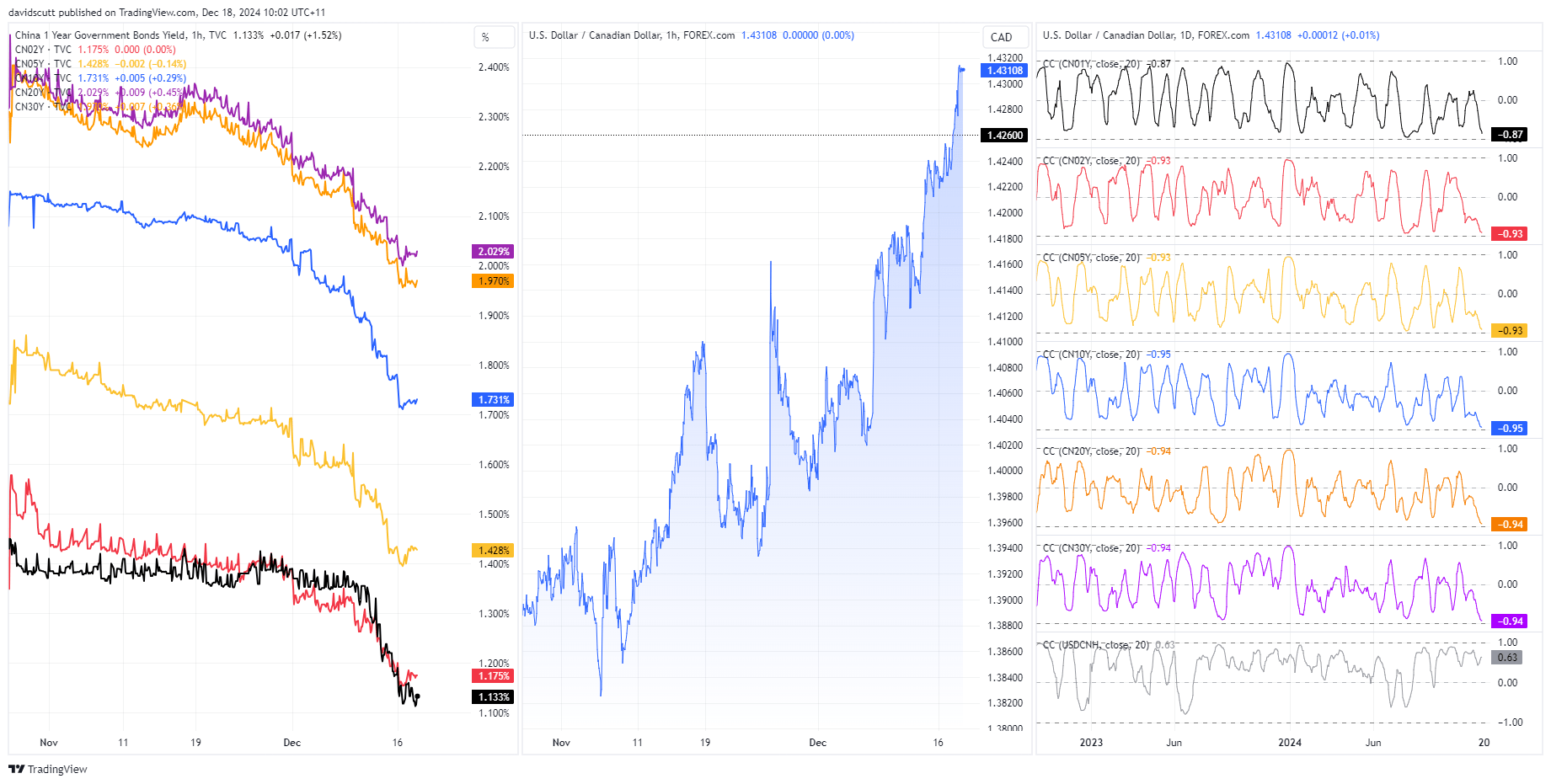
Source: TradingView
The relationship with USD/CAD has been even stronger than with the Aussie, with correlation coefficient scores ranging from -0.87 to -0.95 over the same period. As Chinese yields have sunk, so too has the Loonie against the buck.
Even though not as robust as the relationship with the Aussie and Loonie, a correlation with NZD/USD has also been evident with scores ranging from 0.78 to 0.85 over the past month.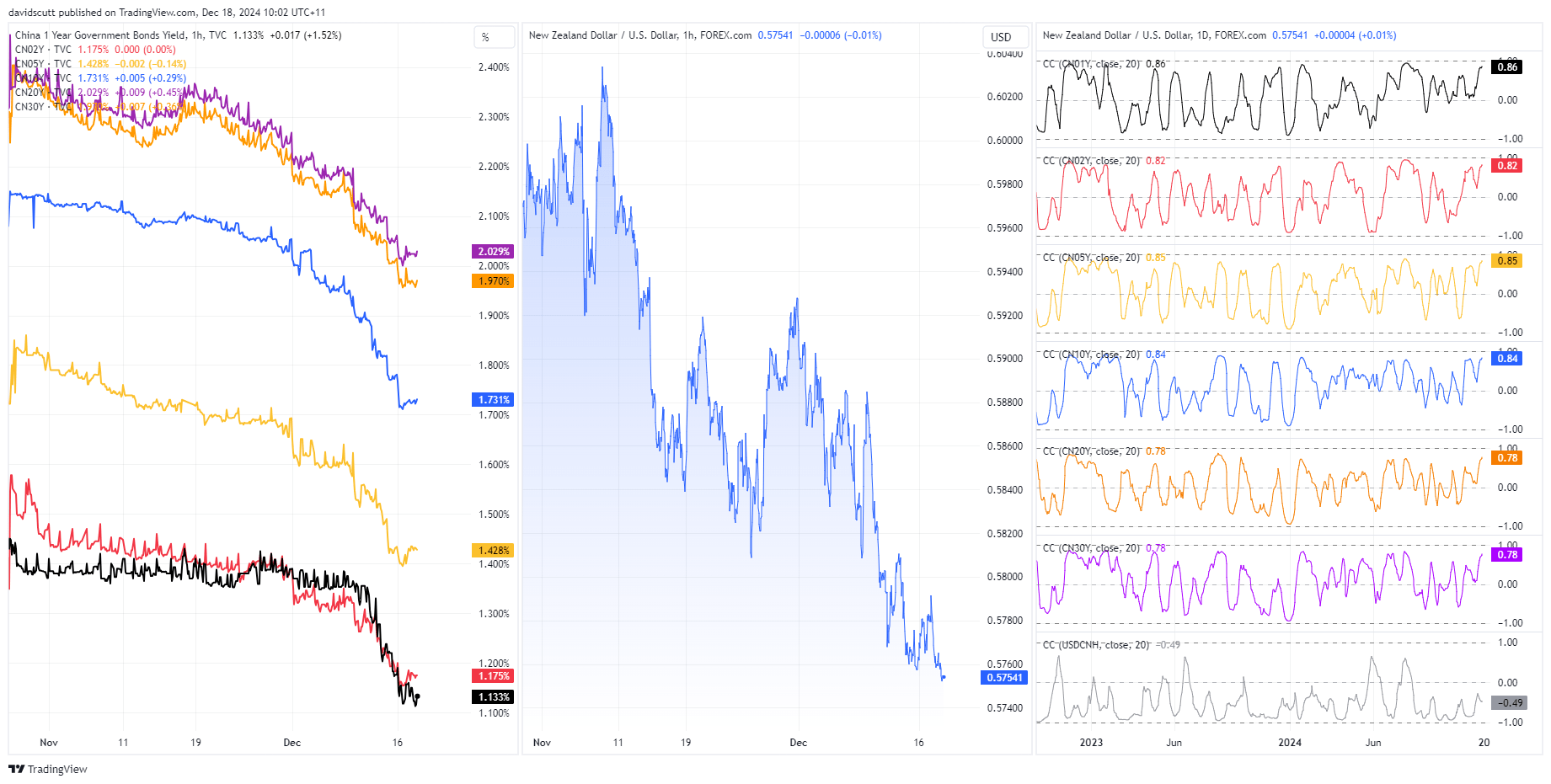
Source: TradingView
The Disclaimer*
It needs to be emphasised that it’s not just Chinese bond yields driving AUD/USD, USD/CAD and NZD/USD moves. As they are priced against the US dollar, it’s certain information in the Fed’s updated dot plot later Wednesday will influence broader marker movements, not just the FX universe. But once the volatility dies down, you cannot ignore the influence of Chinese markets given the recent dominance.
With that framework in place for assessing trade setups, it’s time to look at the technical picture for AUD/USD, USD/CAD and NZD/USD.
AUD/USD Teeters After Uptrend Break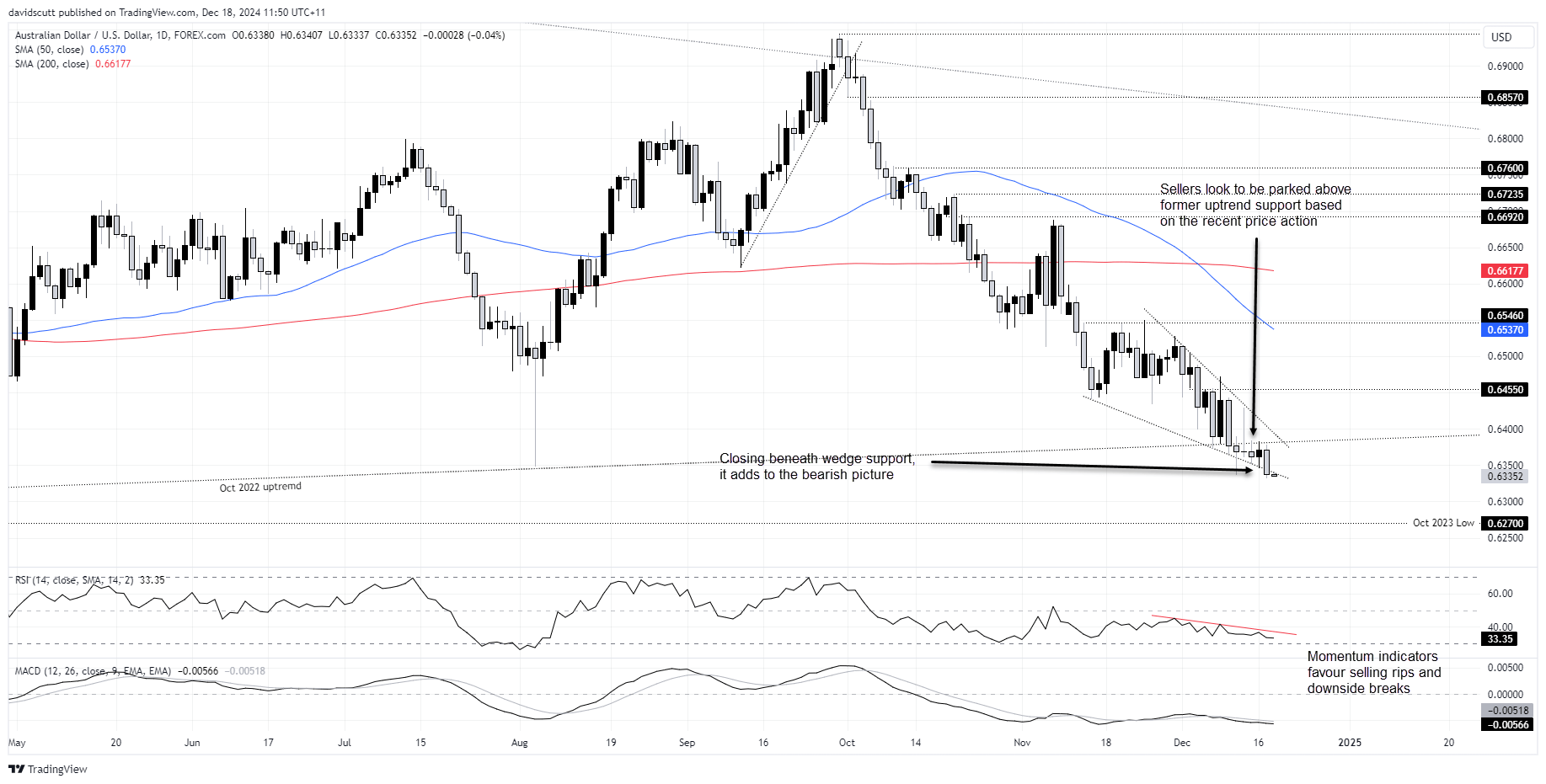
Source: TradingView
AUD/USD looks vulnerable, rejected five consecutive times at former uptrend support dating back to October 2022, seeing the price slice through and close below wedge support on Tuesday. With RSI (14) and MACD generating bearish momentum signals, the bias remains to sell rallies and downside breaks, especially with the former not yet oversold.
If the bearish break of wedge support sticks, there’s little visible support evident until .6270, the low struck in October 2023. AUD/USD has not spent a lot of time around these levels over the past two decades outside of economic and market crises.
As for resistance, sellers are parked above the former uptrend located just below .6400. If that were to give way, wedge resistance around .6400 and .6455 are levels of note.
USD/CAD Overbought but Biased Higher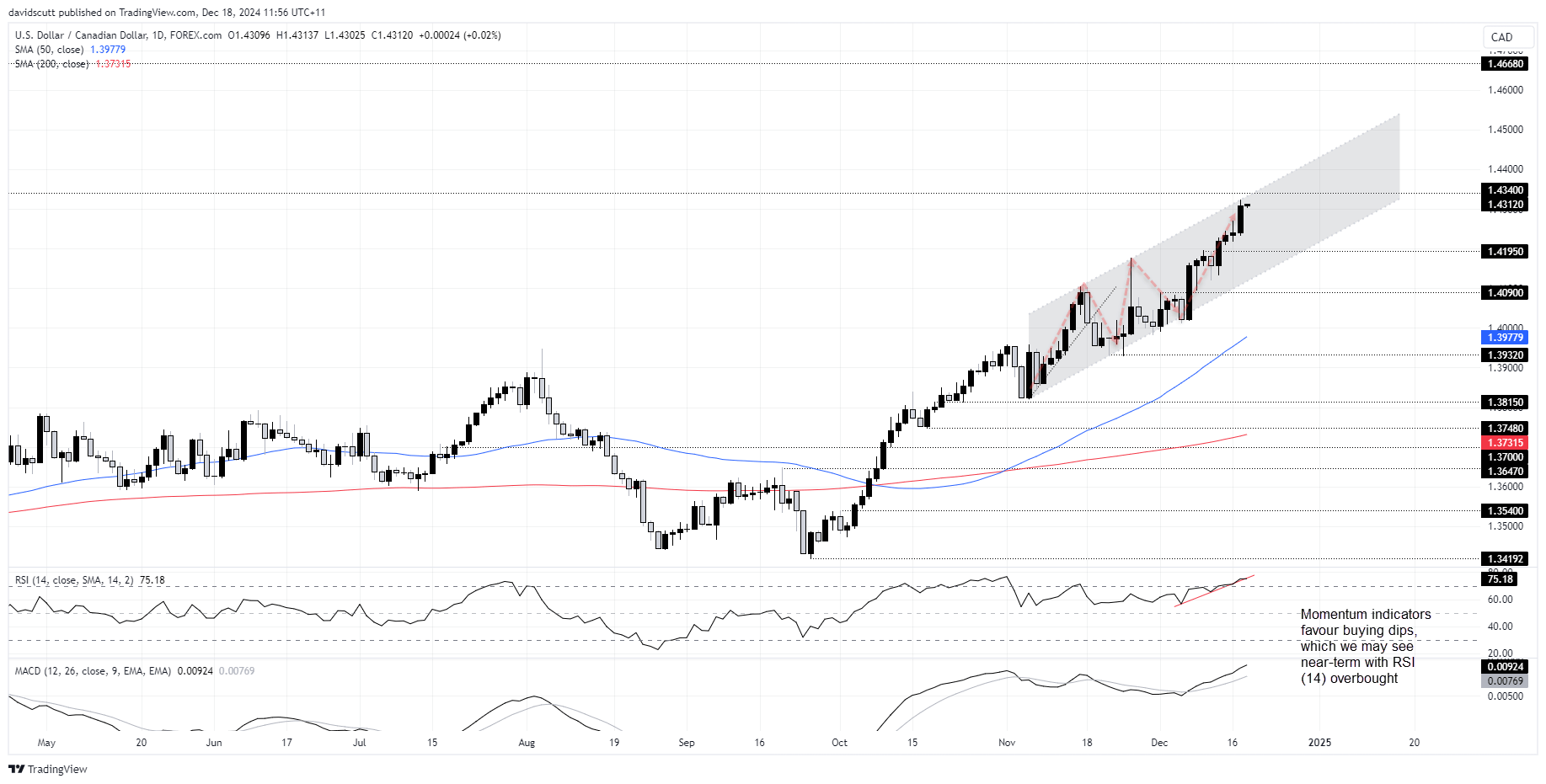
Source: TradingView
USD/CAD continues to march higher within a rising channel, hitting fresh YTD peaks along the way. With RSI (14) and MACD generating bullish momentum signals, buying dips and topside breaks is favoured. With the former overbought, it screens as a candidate for a potential near-term pullback.
1.4340 is a minor level that acted as support and resistance in the early stages of the pandemic. Beyond, there’s not a lot visually standing in the way of push towards the pandemic high of 1.4668. As for downside levels, 1.4195, channel support and 1.4090 are located nearby.
NZD/USD Providing Spurious Signals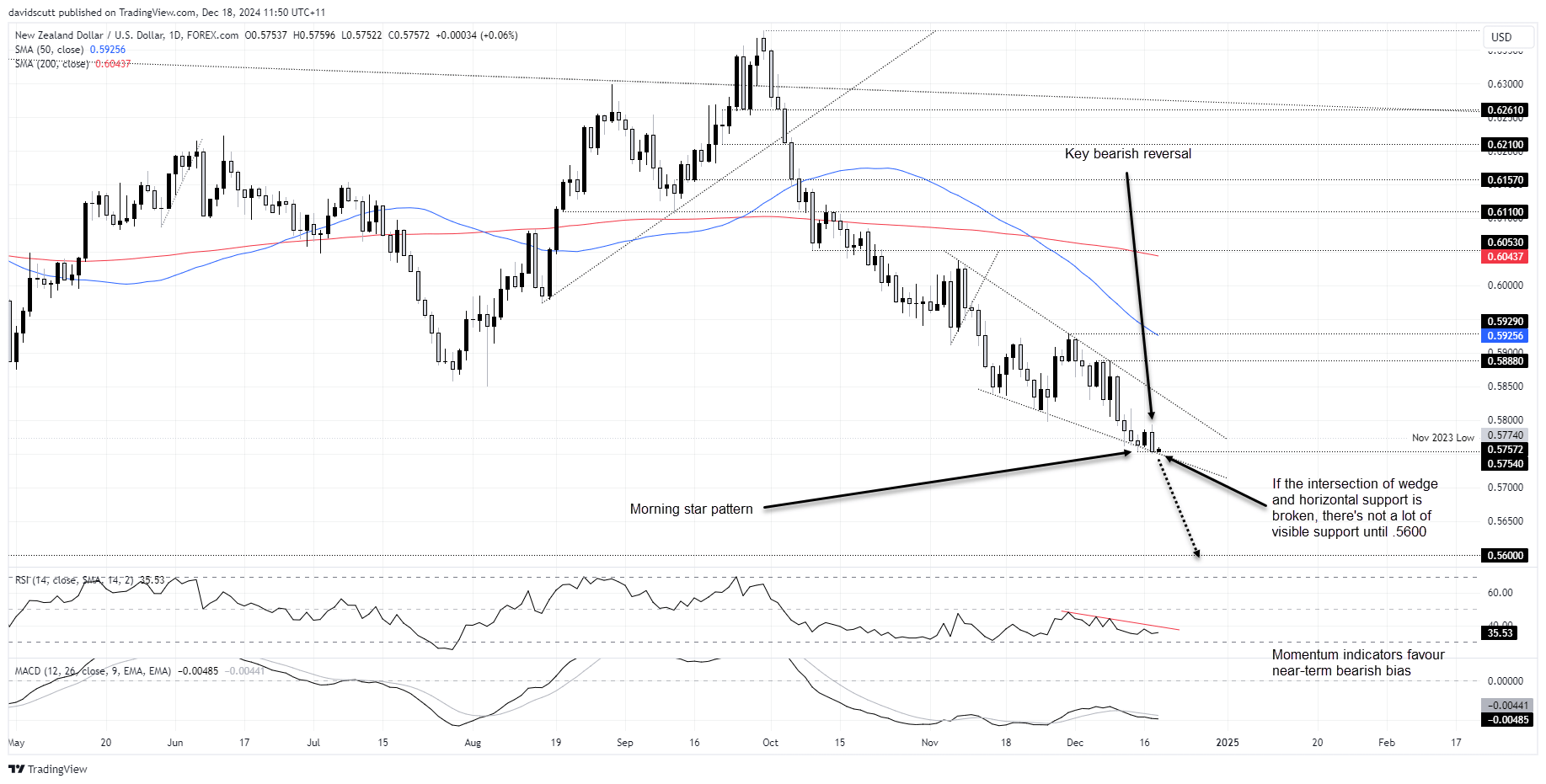
Source: TradingView
NZD/USD may be stuck in a falling wedge as part of a broader bearish move, but its recent price signals have proved to be inconsistent with a completed morning star pattern on Monday followed by a key bearish reversal on Tuesday. Rather than definitive price signals, it screens as pre-Fed chop.
Right now, buyers are nibbling away around .5754, with little visible support evident beyond until .5600. Given recent form, any bounces above .5800 will find sellers circling like seagulls over chips.
RSI (14) and MACD are trending lower, providing bearish signals on momentum. Therefore, selling rips and bearish breaks is preferred.
The Fed Dot Dilemma
I’ve written extensively about possible market scenarios that may arise from the Fed’s updated dot plot which conveys member expectations for where interest rates may sit in the future.
The key points to reinforce are:
- The December rate decision matters little as it’s priced in;
- Traders look for 2.5 rate cuts from the Fed in 2025. After indicating four three months ago, the revised estimate relative to market pricing will be key for market reaction;
- The long-run dot – which is the neutral rate estimate – is likely to rise from 2.9%. The scale of the increase will be highly influential on longer-term bond yields, hence FX markets too.
